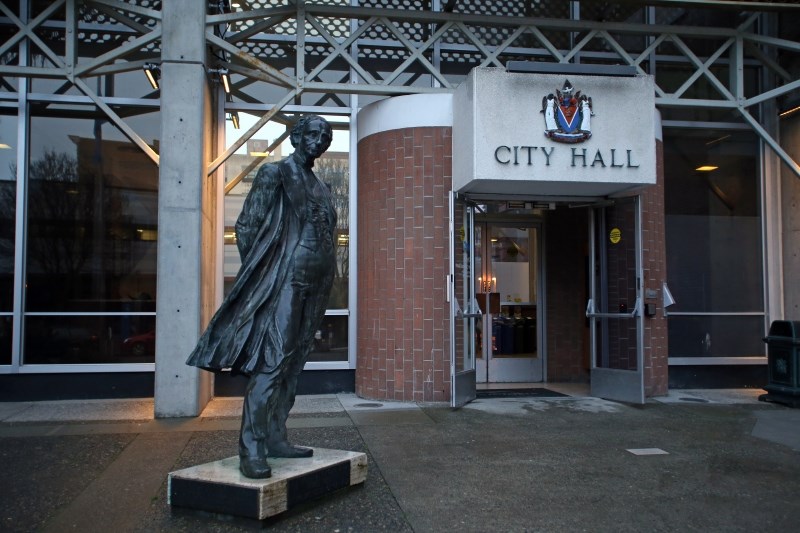Victoria has dropped its bid to have the province impose a 15 per cent non-resident buyers tax on real estate transactions.
Last week councillors, sitting as a committee of the whole, voted to ask the province to immediately impose a tax to cool what has become one of the three hottest real estate markets in the country.
But after hearing several presentations at council Thursday evening, the resolution failed on a 4-4 tie vote.
Mayor Lisa Helps said it’s time to move on. “I was in favour of it, but, honestly, it’s not going to make that big of a deal,” she said. “It’s the province’s responsibility. The province is going to do it or they are not.”
Helps said it’s time to look at “things that we can actually do to create more affordable home ownership in the region, because that’s the problem this is trying to address.”
The resolution had been sponsored by councillors Jeremy Loveday and Ben Isitt, who argued it made sense to bring in the tax here given the other two hot real estate markets — Greater Vancouver and Greater Toronto — now have the tax.
Voting against the motion were councillors Marianne Alto, Chris Coleman, Margaret Lucas and Geoff Young. Helps and councillors Pam Madoff, Loveday and Isitt voted in favour.
Coun. Charlayne Thornton-Joe recused herself because she’s related to real estate agent Tony Joe, one of the presenters to council.
The province imposed the 15 per cent property transfer tax on foreign buyers in Metro Vancouver last August. Home prices there fell after the tax came into force, but have started creeping up again.
The latest statistics show the number of units sold in the Vancouver area in March jumped by 48 per cent compared to February. The historical average is about 25 per cent.
Meanwhile, with affordability emerging as a major issue in the May 9 provincial election campaign, the B.C. NDP and the B.C. Green Party are calling for greater government intervention in the real estate market.
The NDP has proposed to close “loopholes that let speculators dodge taxes and hide their identities, and [charge] a yearly two per cent absentee speculators tax to crack down on empty homes.”
The Green Party proposes a sliding scale for property-transfer taxes peaking with a rate of 12 per cent on homes above $3 million.
It is calling for a foreign buyers tax of 30 per cent that would be applied to the entire province.
— With files from The Canadian Press
What the parties are promising in the May 9 B.C. election
B.C. Greens
• Introduce measures to eliminate money laundering and property speculation
• Implement a provincial housing plan for affordable rental accommodation
• Invest up to $750 million per year to create approximately 4,000 units of affordable housing per year
• Update the Residential Tenancy Act to protect renters
B.C. Liberals
• Expand the Home Renovation Tax Credit eligibility to those renovating their home to accommodate a secondary suite
• Raise the threshold of the First Time Home Buyers’ Program exemption to $500,000, saving first-time home buyers up to $8,000
• Invest $700 million in the B.C. HOME Partnership program to provide mortgage down payment assistance loans to first-time home buyers
• Continue support for RAP and SAFER to assist over 33,000 low-income families and senior households with their rent each year
B.C. NDP
• Provide a new renter’s rebate of $400 dollars per rental household per year
• Close the B.C. Liberals’ “fixed term lease” loophole and ensure controls on rent increases are enforced
• Close loopholes that let speculators dodge taxes and hide their identities, and charging a yearly two per cent absentee speculators’ tax to crack down on empty homes. Revenue would go to a Housing Affordability Fund.
• Establish a multi-agency task force to fight tax fraud and money laundering in the B.C. real estate marketplace



